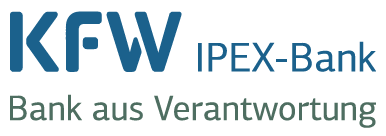EU Taxonomy
KfW IPEX-Bank’s Taxonomy-eligible business in 2021
The EU Taxonomy reporting requirements arise from Regulation (EU) 2020/852 (“EU Taxonomy”) and Delegated Regulation EU 2021/2178, which defines Art. 8 of the EU Taxonomy Regulation. They oblige KfW IPEX-Bank to include information in its non-financial statement on how and to what extent its business activities are to be classified as environmentally sustainable (“taxonomy-eligible”) economic activities in accordance with the EU Taxonomy.
Importance of the EU Taxonomy for KfW IPEX-Bank
KfW IPEX-Bank supports the German and European economies with project and export finance. Its focus on medium and long-term financing for German and European exports, infrastructure investments and securing the supply of raw materials as well as environmental and climate protection projects around the world requires a high proportion of financing that goes beyond the framework defined by the EU Taxonomy.
This means that transactions with countries, central banks and supranational issuers are completely excluded from the calculation of the key figures. Transactions with small and medium-sized enterprises (SMEs), and thus the share of financing involving special purpose vehicles (SPVs) as well as the financing of financial institutions and companies outside the EU, are not taken into account when determining taxonomy-eligible economic activities within the meaning of the EU Taxonomy.
As a result, KfW IPEX-Bank’s new commitments in the 2021 reporting year were not included or could not be adequately taken into account in the determination of the relevant key figures. This leads to a “zero” weighting in the determination of taxonomy-eligible activities for these types of finance. This also includes all commitments that are fundamentally environmentally sustainable, such as those from the areas of renewable energies and environmental technologies.
This results in a total share of taxonomy-eligible activities of 0.0% for 2021.
Classification of environmentally sustainable activities as per the environment and climate quota
In order to still be able to present a realistic picture of the ecological dimension of KfW IPEX-Bank’s overall portfolio, the environment quota offers a good overview. It indicates the extent to which the new commitment volume is to be allocated to the area of “climate change and the environment”.
KfW IPEX-Bank uses the group-wide methodology for offsetting individual financings to determine the environment quota. The environment quota then includes projects that have a positive effect on the climate (including projects in the areas of renewable energies and energy efficiency) as well as projects that help to protect the environment and conserve resources (including projects in the areas of waste/wastewater prevention and resource efficiency).
Further details on the environment quota are available in the Sustainability Report.


Share page
To share the content of this page with your network, click on one of the icons below.
Note on data protection: When you share content, your personal data is transferred to the selected network.
Data protection
Alternatively, you can also copy the short link: https://www.kfw-ipex-bank.de/s/enxBldU3
Copy link Link copied